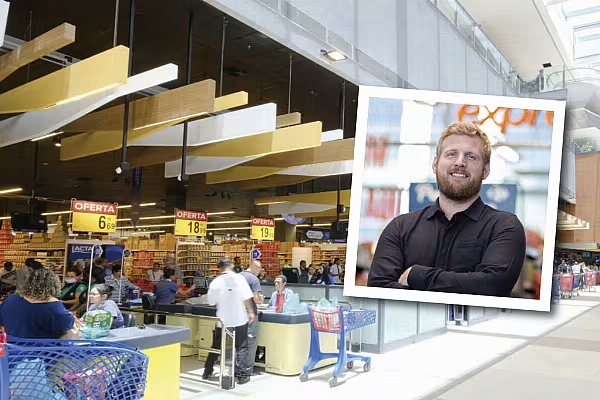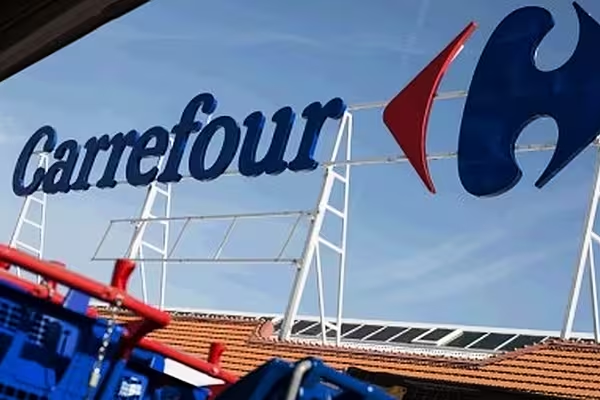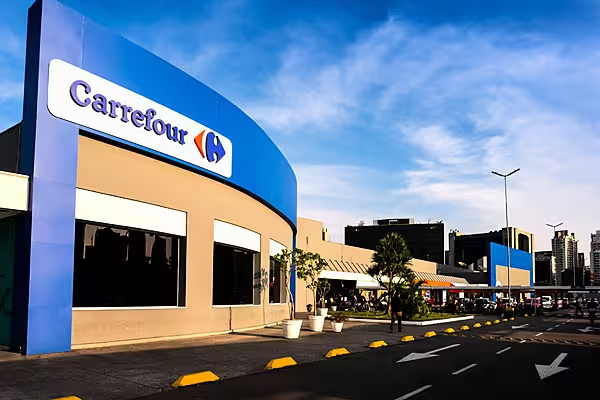As part of our Retail Technology report, ESM reached out to leading retail executives to get their perspectives on several salient topics when it comes to digital transformation – including Sam James, Chief Digital Officer, Carrefour Brasil. This article first appeared in ESM's March/April 2024 edition.
Sam James has held the role of chief digital officer at Carrefour Brasil since 2022, overseeing the digital transformation of the group’s Carrefour, Atacadão, Sam’s Club and Carrefour Property brands, as well as the digitalisation of its Banco Carrefour business.
This included the launch (earlier this year) of the new Banco Carrefour app, which boasts a new navigation experience, ensuring a better customer usage journey.
Do you think that we have reached a tipping point in terms of technology adoption by retailers, and if so, why?
Regarding the adoption of technology among retailers, especially in Brazil, it’s currently a mixed picture. While e-commerce has notably advanced, particularly among electronics retailers, driven by the necessity to compete with online entities, the technology underpinning the offline aspects of retail remains largely outdated.
This discrepancy indicates that although there has been significant movement toward digital transformation, a comprehensive adoption across all facets of retail technology has yet to be achieved.
Retail sectors such as food, pharma and cosmetics are enhancing their online presence, yet the foundational systems that drive offline retail require substantial upgrades.
Data utilisation in the retail sector is approaching a tipping point, with a wide variance in the sophistication of its application among different retailers, suggesting a pivotal moment in technology adoption is near, albeit with uneven progress across the spectrum.
To what degree do you think that artificial intelligence and machine learning will influence the retail industry over the coming years?
Addressing the roles of data analytics, artificial intelligence [AI] and machine learning [ML], collectively, is essential, as they form a unified strategy for data and each will have key roles in driving transformation. These technologies promise to redefine the retail landscape in Brazil, where many retailers still trail behind global benchmarks in leveraging data-driven insights.
The retail industry – characterised by intricate challenges across assortment planning, pricing strategies, supply chain management, logistics, merchandising, and customer personalisation – stands to benefit immensely from the sophisticated decision-making capabilities enabled by data analytics and AI/ML models.
These technologies allow for the consideration of vastly more variables and the ability to adapt swiftly to new information, offering substantial advantages in a sector where margins are slim. Notably, the development of AI/ML applications can be more cost effective than other digital transformation initiatives, such as modernising ERP systems, making it an attractive area for investment.
What challenges, if any, do you anticipate for retailers in terms of integrating new technologies into their operations?
The primary obstacles to integrating new technologies within the retail sector are cultural. As the pace of technological change accelerates, retailers will be confronted with the need for substantial shifts in working practices, processes, and skill sets.
The challenge lies in managing this transformation, requiring a significant cultural shift within organisations. Retailers must navigate these changes, fostering an environment that supports continuous learning and adaptation to new technologies.
This cultural pivot is crucial for the successful integration of advanced data analytics and AI and ML technologies into retail operations, enabling retailers to remain competitive.














